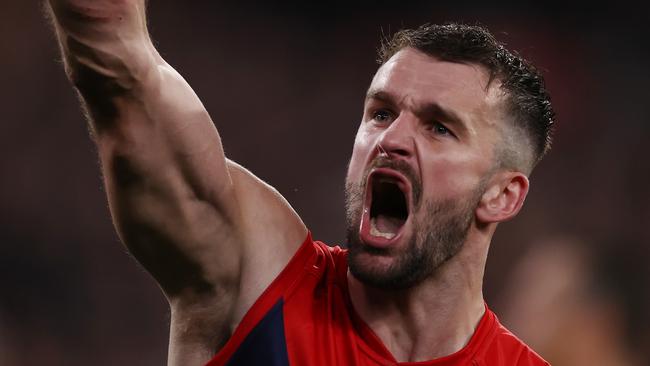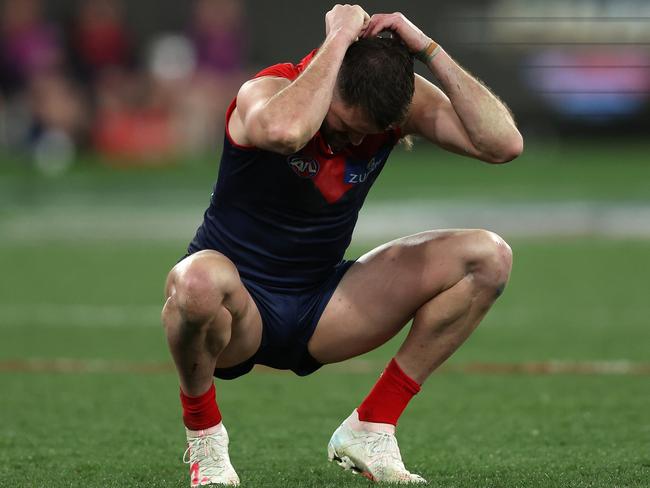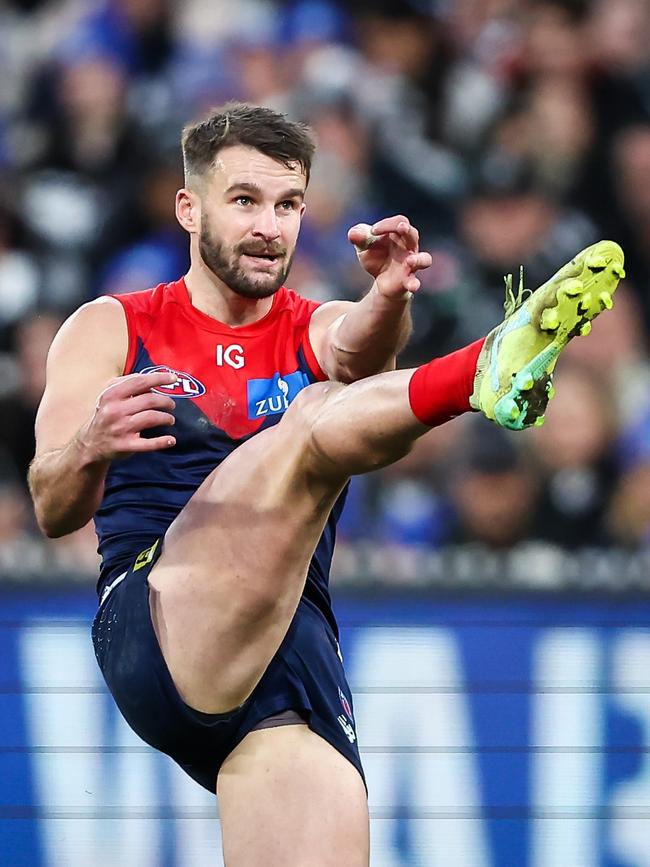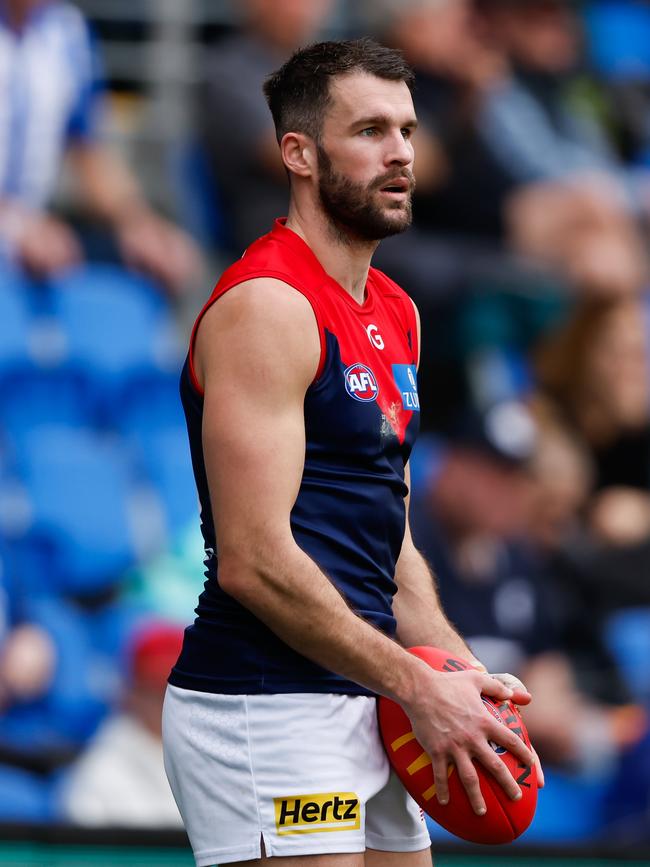Melbourne players who received text messages from banned teammate Joel Smith to avoid penalties
Ex-teammates of banned AFL player Joel Smith will not be penalised, the AFL has confirmed. It comes after Smith learned his fate.

Victoria
Don't miss out on the headlines from Victoria. Followed categories will be added to My News.
Melbourne players who received text messages from suspended teammate Joel Smith regarding cocaine will not be penalised.
The AFL on Friday confirmed Smith, 28, received a ban of more than four years for cocaine use, trafficking and possession.
A message from Smith in which he told teammates he had obtained cocaine and asked if they were interested was understood to have been uncovered by Sport Integrity Australia (SIA) as part of the investigation into Smith.
A league spokesman said: “The AFL is not aware of any investigations by SIA of any other players”.
Smith has been banned from playing AFL until January 9, 2028.

Melbourne football boss Alan Richardson said the club had already cut ties with Smith, and his contract with the club officially ended on October 31.
He had not trained or played with the team throughout 2024 as he sat through an interim suspension.
Richardson said the club had taken steps to avoid future doping woes.
“It is important as a club we learn from this experience,” he said.
“As a result of the initial violations asserted against Joel, we have taken steps to enhance our education in this area, on top of what was already provided by the club.
“This includes an increase in facilitated education sessions with our players, which will be an ongoing commitment for the club.”
Smith will not be eligible to return to the AFL until the 2028 season after the league revealed his anti-doping offences included three separate counts of trafficking cocaine.


The Melbourne utility has been banned for four years and three months, a sentence backdated to October, 2023.
He will be allowed to return to training in November, 2027.
The AFL detailed the sentence – first revealed by the Herald Sun on Thursday - came after an investigation found Smith trafficked, or attempted to traffic, cocaine in July 2022, September 2022 and over a five-month period from April to September 2020.
Smith was also found to have possession of cocaine on September 9, 2022.
Smith was caught with cocaine in his system during a routine drug test after Melbourne defeated Hawthorn in round 23, 2023.
He was later hit with additional drug trafficking charges by Sport Integrity Australia investigators.
AFL CEO Andrew Dillon said on Friday: “The outcome in this matter, in which Joel Smith has been suspended for more than four years, reflects the seriousness with which the AFL treats breaches of the Australian Football Anti-Doping Code and is a salutary lesson for any player using illicit substances that are prohibited under the WADA Code.
“The use of performance enhancing substances is strictly prohibited in Australian Football and the AFL will continue to work with Sport Integrity Australia to identify and prosecute the use of such substances In-Competition and other conduct prohibited by the Australian Football Anti-Doping Code.
“The AFL does not in any way condone the use of illicit drugs. If a player chooses to use illicit drugs, the potential consequences are substantial, including risks to health and safety and of losing the privilege of playing professional football, as has occurred here.”



